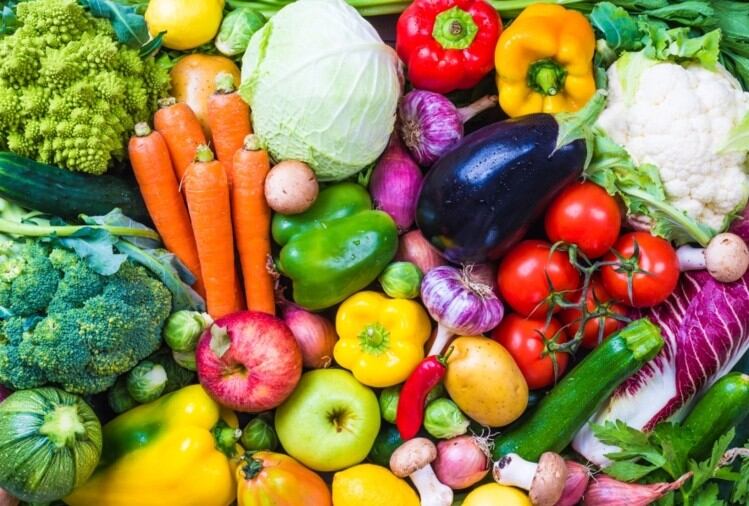An estimated 11 million deaths and a range of chronic diseases were attributable to food and drink consumption in 2017, according to the Global Burden of Disease study published in The Lancet.
More deaths were caused by diets with shortfalls in foods such as wholegrains, fruit, nuts and seeds, than those high in foods such as trans fats, sugary drinks, and red and processed meats, found the study, which tracked consumption of 15 dietary factors.
People in almost every region of the world could benefit from rebalancing their diets to eat optimal amounts of various foods and nutrients – and policy-makers should shift their emphasis from dietary restriction to promoting healthy food, the study authors concluded.
The findings highlighted the urgent need for coordinated global efforts to improve diet, through collaboration with various sections of the food system and policies that drove balanced diets, they added.
“This study affirms what many have thought for several years – that poor diet is responsible for more deaths than any other risk factor in the world,” said study author Dr Christopher Murray, director of the Institute for Health Metrics and Evaluation, at the University of Washington in the US.
‘Sodium, sugar and fat’
“While sodium, sugar and fat have been the focus of policy debates over the past two decades, our assessment suggests the leading dietary risk factors are high intake of sodium, or low intake of healthy foods, such as wholegrains, fruit, nuts and seeds, and vegetables.
“The paper also highlights the need for comprehensive interventions to promote the production, distribution and consumption of healthy foods across all nations.”
Of the 11 million diet-related deaths in 2017, 10 million deaths were from cardiovascular disease, 913,000 from cancer, and almost 339,000 from type 2 diabetes. Deaths related to diet have increased from 8 million in 1990, largely due to increases in the population and population ageing.
Across the 195 countries studied, the UK ranked 23rd (127 deaths per 100,000 people) above Ireland (24th) and Sweden (25th). The US ranked 43rd (171 deaths per 100,000) after Rwanda and Nigeria (41st and 42nd).
There was a 10-fold difference between the country with the highest rate of diet-related deaths (Uzbekistan – 892 deaths per 100,000) and the country with the lowest (Israel – 89 per 100,000).
Diets high in sodium, low in wholegrains, and low in fruit together accounted for more than half of all diet-related deaths globally in 2017.
The authors found that intakes of all 15 dietary elements were suboptimal for almost every region of the world – no region ate the optimal amount of all 15 dietary factors, and not one dietary factor was eaten in the right amounts by all 21 regions of the world.
The largest excesses
The 15 dietary elements
Diets low in…
- Fruits
- Vegetables
- Legumes
- Wholegrains
- Nuts and seeds
- Milk
- Fibre
- Calcium
- Seafood omega-3 fatty acids
- Polyunsaturated fats
Diets high in…
- Red meat
- Processed meat
- Sugar-sweetened beverages
- Trans fatty acids
- Sodium
The authors noted that there were varying levels of data available for each of the 15 dietary factors, which increased the statistical uncertainty of these estimates.
The largest shortfalls in optimal intake were seen for nuts and seeds, milk and wholegrains, and the largest excesses were seen for sugar-sweetened beverages, processed meat and sodium.
On average, the world only ate 12% of the recommended amount of nuts and seeds (around 3g average intake per day, compared with 21g recommended per day), and drank around 10 times the recommended amount of sugar sweetened beverages (49g average intake, compared with 3g recommended).
The report authors said the magnitude of diet-related disease highlighted the fact that many existing campaigns had not been effective. They called for new food system interventions to rebalance diets around the world.
However, any changes must be sensitive to the environmental effects of the global food system to avoid adverse effects on climate change, biodiversity loss, land degradation, depleting freshwater, and soil degradation.
Writing in a linked comment, Professor Nita Forouhi of the Medical Research Council Epidemiology Unit at the University of Cambridge School of Clinical Medicine said: “Limitations notwithstanding, the current findings provide evidence to shift the focus, as the authors argue, from an emphasis on dietary restriction to promoting healthy food components in a global context.
“This evidence largely endorses a case for moving from nutrient-based to food-based guidelines. There are, of course, considerable challenges in shifting populations’ diets in this direction, illustrated by the cost of fruits and vegetables being disproportionately prohibitive.
“A menu of integrated policy interventions across whole food systems, internationally and within countries, is essential to support the radical shift in diets needed to optimise human health, and protect planetary health.”




